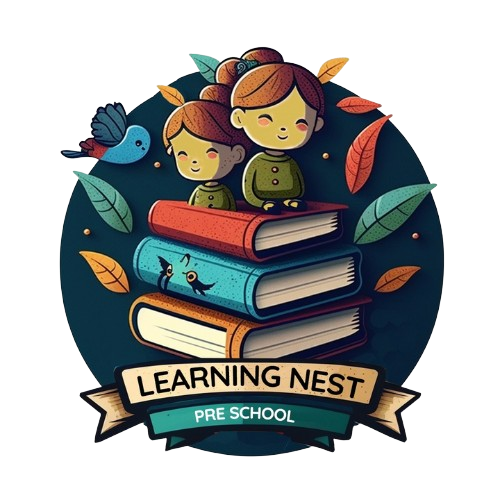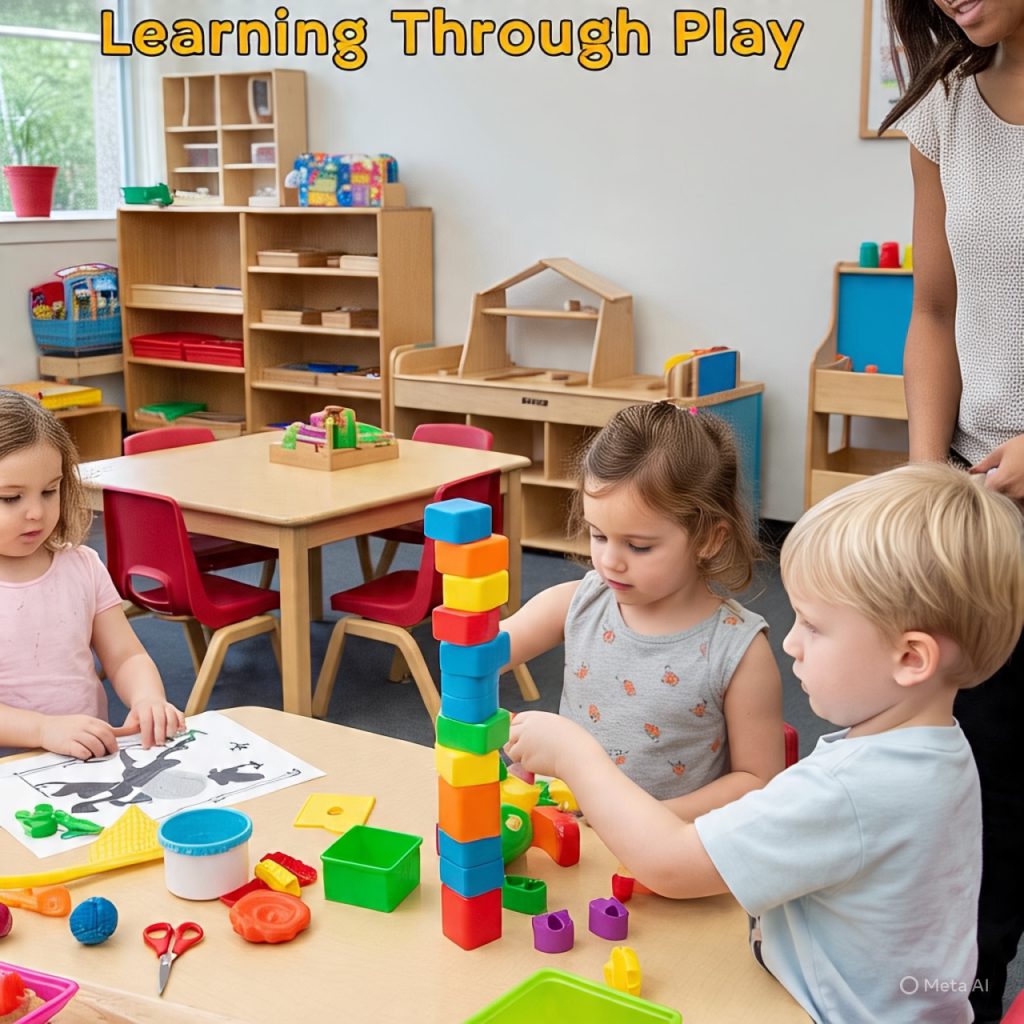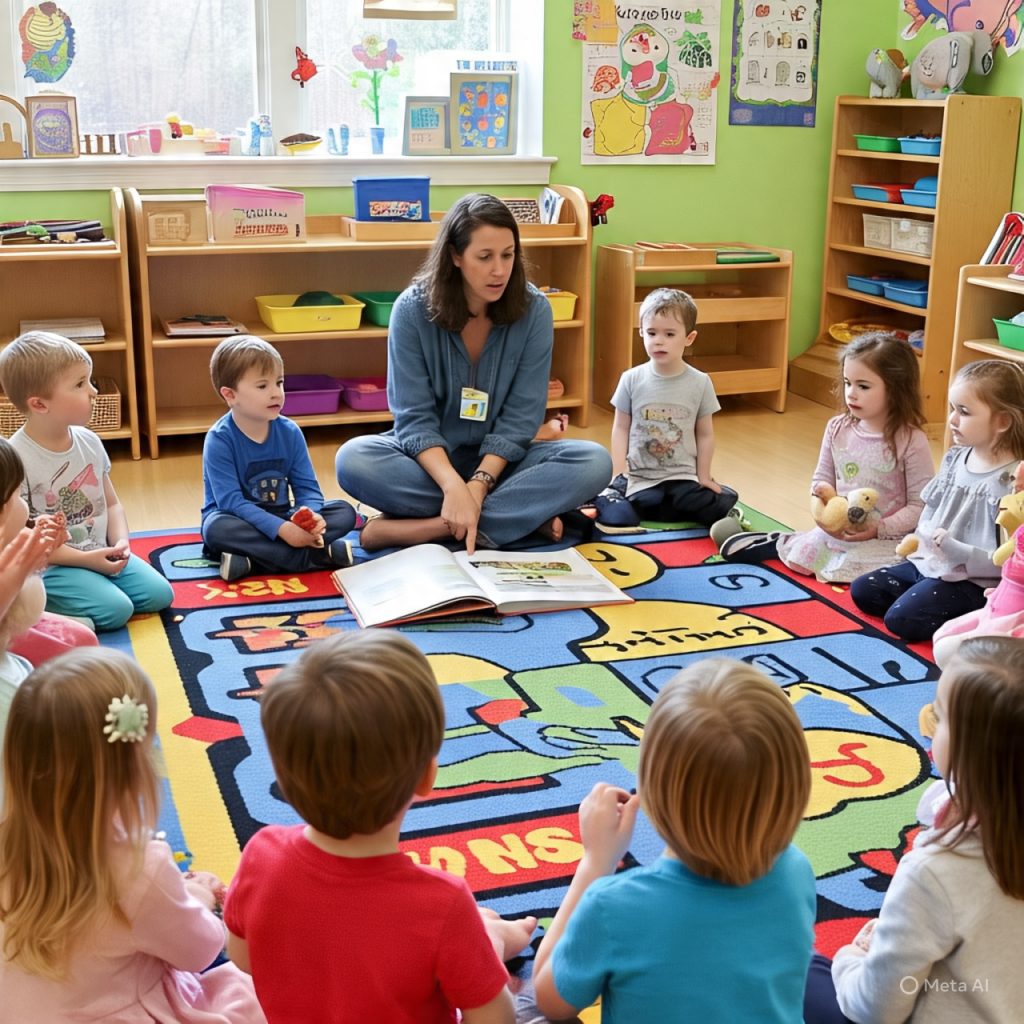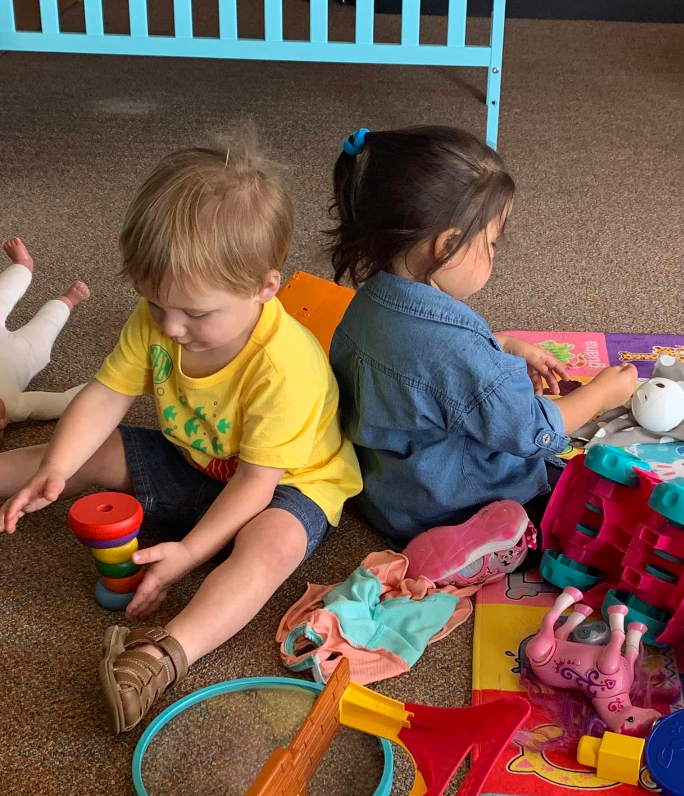Introduction
When children put on a crown, pretend to be a doctor, or run a make-believe grocery store, they’re doing much more than playing — they’re learning. At Learning Nest Preschool, we see dramatic play as one of the most powerful tools for early childhood development. It sparks imagination, builds social skills, and helps children make sense of the world around them in fun, meaningful ways.
1. What Is Dramatic Play?
Dramatic play, also known as pretend play, happens when children take on roles and act out real-life or imaginary situations. They might play “teacher,” “chef,” or “superhero” — each scenario helping them explore emotions, communication, and problem-solving. At Learning Nest, our classrooms are designed with play centers like kitchens, dress-up corners, and puppet theaters to inspire creative role-playing every day.
2. Building Language and Communication Skills
When children pretend to be doctors or parents, they naturally use new vocabulary and phrases. They learn how to ask questions, explain ideas, and listen to others — key components of early language development. Dramatic play turns everyday interactions into language lessons that strengthen speaking and listening skills without feeling like “work.”
3. Encouraging Cooperation and Social Growth
Dramatic play often happens in groups, which teaches children how to share, negotiate, and collaborate. Whether deciding who will be the “shopkeeper” or taking turns as the “teacher,” children learn patience, teamwork, and empathy. These skills build a strong foundation for healthy friendships and future classroom success.
4. Strengthening Emotional Understanding
Pretend play gives children a safe space to explore feelings. A child might act out a visit to the doctor to understand what it means to feel nervous or excited. Through role-playing, children learn to manage emotions, express themselves, and develop empathy by “stepping into someone else’s shoes.”
5. Boosting Creativity and Problem-Solving
Dramatic play encourages imagination and critical thinking. When children create stories or solve pretend “problems,” they’re practicing decision-making and flexible thinking. At Learning Nest Preschool, teachers support these activities by asking open-ended questions like, “What happens next?” or “How can we fix this?” — helping children think deeply and creatively.
6. Preparing for Real-Life Situations
Dramatic play also helps children understand real-world experiences. By pretending to visit a store, go to school, or care for a pet, they gain confidence in navigating everyday situations. These play experiences make transitions — like starting kindergarten — smoother and less intimidating.
Conclusion & Call to Action
Dramatic play isn’t just fun — it’s an essential part of learning and growing. At Learning Nest Preschool, we encourage imagination through role-playing activities that build confidence, communication, and creativity. Every pretend adventure helps children learn about themselves and the world around them.
If you’re looking for a preschool in El Dorado AR that values creativity, imagination, and hands-on learning, visit Learning Nest Preschool — where every child’s story begins!












